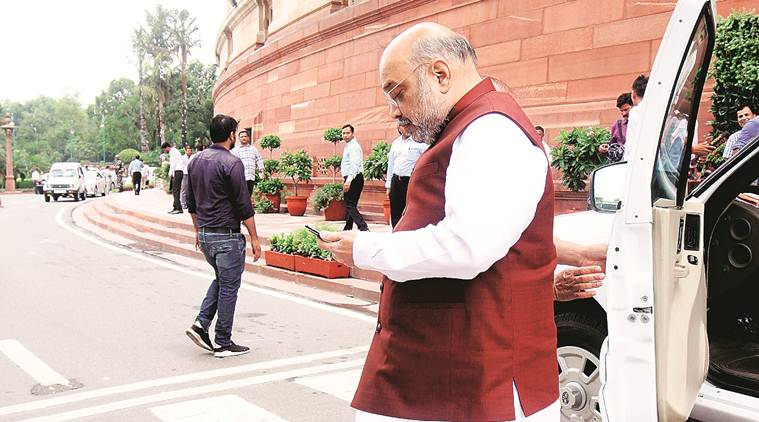
The Bill to amend the National Investigation Agency (NIA) Act, 2008, has been passed by both Houses of Parliament and awaits the Presidential assent and notification prior to becoming law. It seeks to widen the authority of the NIA in terms of the crimes that it can investigate irrespective of the place of occurrence of the crime. The NIA was created as a special investigative agency under the control of the Union government which was meant to investigate crimes which affect the national security of the country, and those against institutions that were under national, as opposed to state government, control. Terror offences, offences against atomic and nuclear facilities, and offences such as waging war against the country, amongst others, were included in this list of offences. Though this may appear to be a technical point, it was clear that the agency was created to investigate crimes against the country, as opposed to ordinary criminal offences.
The reason for restricting the scope of the NIA to a category of offences as previously stated is simple. Under the Constitution, the maintenance of public order and police forces are matters upon which state governments, and not the Union, may legislate. Criminal law and procedure are matters, which may be legislated upon by both the Union as well as state governments. However, as far as ordinary criminal investigations and prosecutions are concerned, it is clear that the state governments have the authority to prosecute such crimes. Not every criminal offence is a threat to national security and sovereignty and consequently, states have the competence to deal with the same.
However, with the recent amendment to the NIA Act, the Central government gets the authority to have the NIA take over the investigation of crimes, which involve allegations of human trafficking, offences under the Explosives Act, and certain offences under the Arms Act. The rationale for effectively allowing the Union government to prosecute such offences is unclear. Not all offences related to explosives may be a threat to national security, nor does an offence under the Arms Act automatically become related to terror activity. A state government would be well within its right to prosecute such offences alone. Further, even under the unamended NIA Act, if offences related to the above-mentioned legislation were committed in connection to a terror offence, the NIA would have had the authority to prosecute them.
On the face of it, it appears that the Union government has encroached upon the rights of the states to conduct investigations into a class of cases which may affect public order, but may not have implications nationally. This goes against the notion of Indian federalism which guarantees states autonomy within a national framework. It further renders the state police forces redundant and centralises even ordinary prosecutions with the Union government.
One cannot forget that the NIA is effectively under the control of the Union government and its recent prosecution of certain cases has been questioned due to allegations of bias. The amendment to the NIA Act also gives the agency authority to investigate crimes committed by persons which are against Indian citizens or “affecting the interest of India”. This term is undefined and is a recipe for misuse by governments which may conflate critical voices and dissent with adversely affecting India’s interests. Further, the laws under which the NIA has the authority to investigate themselves do not mention “affecting the interest of India” as an offence. What we are seeing is the creation of a substantively new (and vague) offence under the guise of giving more procedural powers to an agency under the control of the Union government.
Therefore, the NIA Amendment Bill, 2019 is neither sound on the principles of Indian federalism nor on the established principles of criminal law. It deserves reconsideration.
This article first appeared in the print edition on July 16, 2019 under the title ‘Free Rein To Power’. The writer is assistant professor, National Law School of India University, Bangalore.